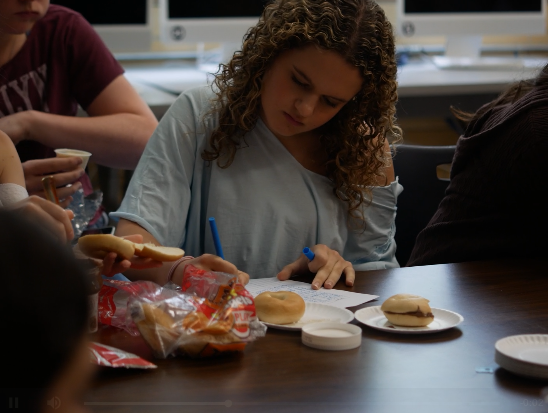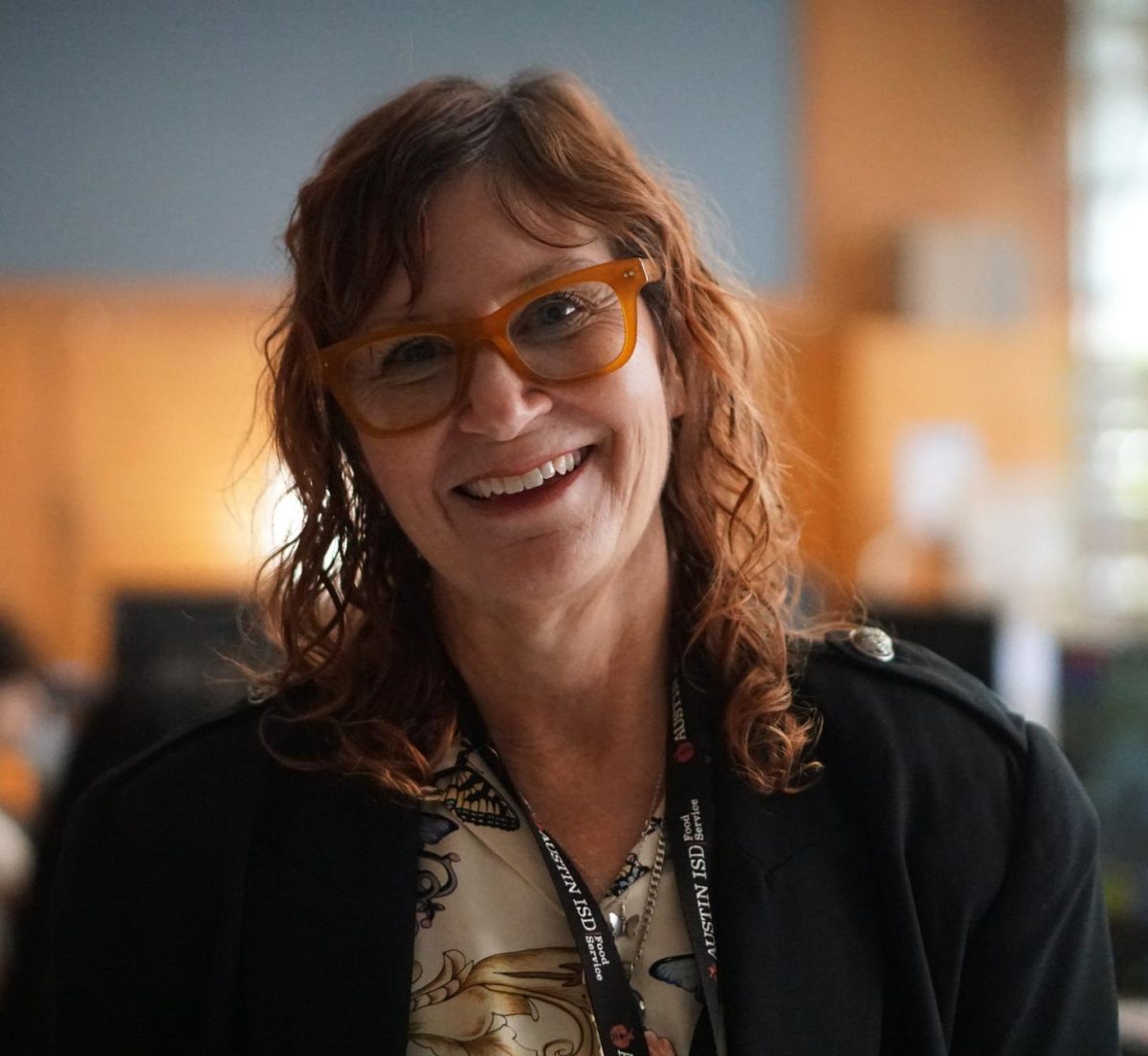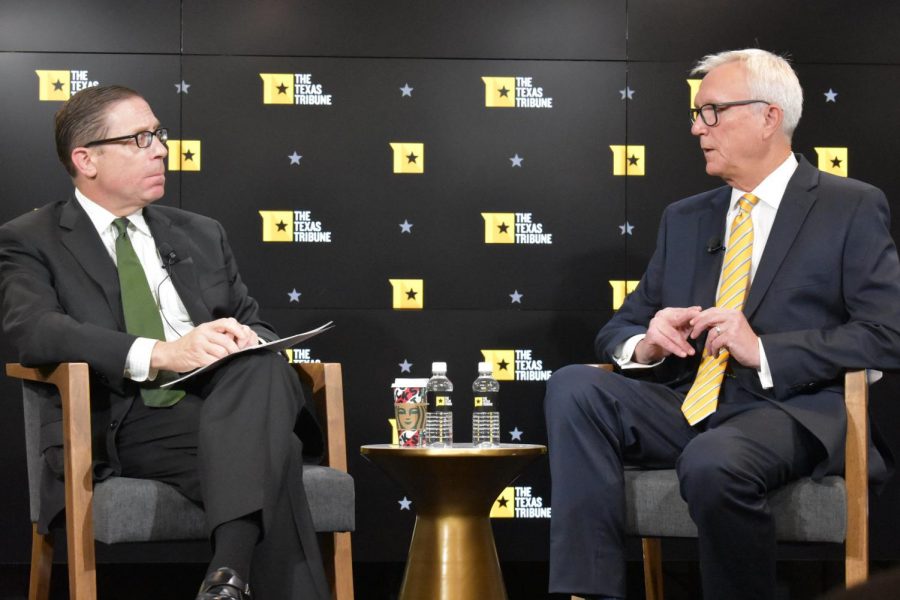In his time at McCallum High School, Andy Brown played soccer. He failed freshman year honors biology and had to go to summer school. He was on the debate team, and was class president his senior year. He wanted to be a lawyer from pretty early on. And though high school seems like a million years ago, Travis County Judge Andy Brown is doing exactly what he thought he would. Pretty close to it, anyway.
“I guess I’ve always been interested in the advocacy part,” Brown said. “Being a lawyer helps amplify my voice, and I’m able to argue for the things I believe in, and that’s always been a big part of my life.”
Brown and advocacy grew up together in Hyde Park. Both his parents were public servants; his mother worked for the Department of Health and Human Services. His father was a professor of government and, later, the Texas Commissioner of Higher Education.
Brown graduated from McCallum in 1990. After that, he graduated from Colorado College and University of Texas School of Law and clerked for a federal judge in McAllen. He then spent five years in South America on various endeavors, including an internship with the United States Agency for International Development in Honduras. He also interned for Ricardo Lagos, former president of Chile. After that, Brown clerked for a federal judge in Argentina who made it possible to reopen investigations into the crimes of a previous military dictatorship.
“My experience in South America made me realize that our democracy here was pretty fragile, in a way, and how important it is to keep it,” Brown said. “And then honestly, all this stuff with Trump and Jan. 6 just made me really think about what happened in Argentina—how that could totally happen here. [It] really makes me want to fight more to protect our election integrity and democracy.”
After being elected as Travis County judge in November of 2020, Brown is trying to do just that. As county judge, Brown presides over commissioner courts and helps govern county government. Although being elected in the middle of the COVID-19 pandemic has changed nearly everything Brown’s job description includes, it has also made certain priorities, and who he’s fighting for, clearer.
“COVID, in particular, has really clarified just how unequal the resources are in lower-income eastern Travis County versus central and western,” Brown said.

Brown explains that lack of resources, such as pharmacies and grocery stores, in eastern Travis County are contributing to higher rates of COVID-19 in those communities.
“When vaccines became available, it was harder to give them out because the federal government basically gave them out through hospitals [and] pharmacies at first, and there just weren’t those same resources in eastern Travis County,” Brown said. “So I guess what I’m fighting for is trying to have more equity across racial, ethnic and income lines across the county. I feel like the job of Travis County government, and me, is to make sure that the resources we’re giving are equal to people in those communities.”
The lack of vaccine availability is an area where Brown has made strides. After vaccines became available, the supply could not meet the demand. Brown, a Democrat, asked the counties of Hays, Caldwell and Bastrop to partner with him in asking the state for more vaccines. Hays County also has a Democratic judge, but Caldwell and Bastrop both have Republican judges. And despite the party differences, all three counties agreed to ask the state for help.
The result? A mass vaccination clinic at the Circuit of the Americas racetrack.
“The state ended up giving us, like, 200,000 more vaccines than we would have gotten otherwise,” Brown said. “It was hugely successful in that we vaccinated a lot of people, but we also vaccinated first all the patients of CommUnityCare, which are the low-income sort of health clinics in Travis County.”
For Brown, COVID has also highlighted another urgent need for Travis County: mental health care.
“That’s really why I ran, was to work on providing mental health resources to make our community safer,” Brown said, “because I think we’re safer when people’s mental health needs are met.”
To that end, Brown led an effort to stop $100 million of county money from being put toward a women’s building in the county jail, an accomplishment of which he’s extremely proud.
“Every woman who I’ve talked to who has been in jail says that they feel that they would rather receive mental health care and counseling outside of the jail,” Brown said. “If you’re in jail, it’s too late, and it’s not a good environment to try to recover and make strides on mental health.”
Instead, Brown hired Dr. Stephen Strakowski, a psychiatry professor at UT Dell Medical School, to lead a six-month study on where and how to invest more in mental health and substance use disorders.
Brown has been in office for a little over a year. By comparison, many Travis County employees have been there for 20 years or more. Brown’s orders and policies have not always been popular; he has been sued twice by the governor of Texas, Greg Abbott. But while working to change the way things have always been done, Brown has learned a few things.
“I know it sounds weird, being a politician, but if you can kind of take away the politics of things, you can, I think, get a lot done,” Brown said.
Brown’s lessons from life in county government echo those he learned 31 years ago in the halls of McCallum High School. His experience on the debate team taught him the power of persuasion, the art of making people see your point of view. He ran for class president senior year and won, after losing the previous year.
“I’ve always felt that that was something about perseverance,” Brown said. “Some lesson there, of not giving up. And with this county judge thing, I ran in 2014 and lost, and then ran last year and won. So I guess it taught me to keep trying and not give up, that kind of thing.”
Lessons aside, his time at Mac gave Brown the opportunity to connect with great teachers and a diverse group of people.
“I loved it,” Brown said. “I really did not like junior high much. I went to Lamar. It’s an awkward time, I guess. But I loved McCallum.”
McCallum left a mark on Judge Andy Brown. And though people often refer to high school as “glory days,” perhaps Brown can serve as an example of the great things ahead for us all.












